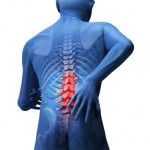Back Pain Relief With Positive Thinking
If you have ever gone through an operation, you may remember the things that the doctor said to you beforehand. Although the doctor will explain the operation, they also want to comfort you. As a patient you will be anxious about the whole process. By virtue of the doctor discussing the operation with you, you probably noticed that your conception of pain had lessened in the process. Therefore, positive thinking has an effect on a patient’s experience of surgery and pain.
It makes sense to give importance to the possibility of back pain relief with positive thinking while managing your back pain. Research says that sickness leave is also affected by positive thinking on pain levels, which means that patients are not as likely to take as much sick leave compared to those patients who did not have a positive mindset. Doctors are interested to see the effects of positive thinking on patients who suffer with long-lasting back pain rather than those who have occasional pain in their back.
Back Pain Relief With Positive Thinking
Research Associate Professor Markus Melloh, an orthopaedic surgeon and rheumatologist with the Western Australian Institute for Medical Research (WAIMR) and The University of Western Australia, found that a third of people studied with niggling non-specific back pain went on to develop everyday back pain that severely affected their career and social lives.
Although the workers required extended sick leave and went to their doctors complaining of pain, only a few had suffered a physical change such as a slipped disc. Anatomical tests showed no reasons for their ongoing daily problems with pain.
“Everybody has occasional lower back or neck pain but we are concerned about people with continuous non-specific pain for weeks at a time, which has significant socio-economic and personal costs,” Associate Professor Melloh said.
Researchers found that patients who continued to show “maladaptive cognitions” such as fear and helplessness about their condition, movement avoidance and magnification of its seriousness were most likely to develop a persistent condition.
“Attitude in the workplace and positive thinking have a huge impact on lower back pain,” Associate Professor Melloh said. “If an employee has the option to participate in change in their workplace or have some say in their job design, they can regain a positive attitude and the condition may correct itself.
“Having somebody to listen and show emotional support at work is a strong protective factor.”
A total of 315 patients who went to their GP with their first episode of non-specific back pain were interviewed at that time and followed up at three, six and 12 weeks, and six months. The assessment included questions about their attitude. By the end of the study, 169 people were still participating in the research and about a third of them – 64 patients – were classed as having a persistent condition.
Some reported worse pain after six months, which was not what doctors would usually expect.
“Once people stay at home on sick leave, it gets harder to go back to work and the pain gets worse,” Associate Professor Melloh said. “It’s a vicious circle that needs to be broken. The research shows that if patients feel helpless and are convinced that any movement will land them in a wheelchair, they are making their condition worse.”
Associate Professor Melloh said the study focused only on lower back pain because its incidence was higher than neck pain. However, neck pain was now increasing and may also be linked to a resigned attitude at work.
“Therapies to address the way patients think about their condition should be considered as early extra treatment for lower back pain for people who appear to be at risk of developing a persistent condition,” he said.
So, it has been proven that patients who actually think that their condition is pretty serious will develop an elevated back pain condition. This is likely to be improved if the person thought positively about their pain. It is acknowledged that some people may develop prolonged back pain, which in turn may become a serious condition later. If someone’s back pain is serious, it will be difficult for them to return to work after just a few days of rest, and thinking about the pain and fearing it will make it even worse.
Therefore, back pain relief with positive thinking has actually a very important role to play when thinking about back pain relief. When the doctor suggests a routine treatment for patients who are suffering from any kind of disease, any mental therapy that will create a positive attitude towards pain relief must be a part of it. This is important in the holistic treatment of back pain. Once they develop a positive attitude towards back pain, they will most likely get cured sooner than they may expect. This will also help them from thinking that their back pain is worse than it actually is.
So Stay Positive! It is proven to work.
You might also like:
Tags: back pain, Back Pain Relief With Positive Thinking, cure back pain, pain relief, Positive Thinking, positive thinking to help back pain, Power of positive thinking















